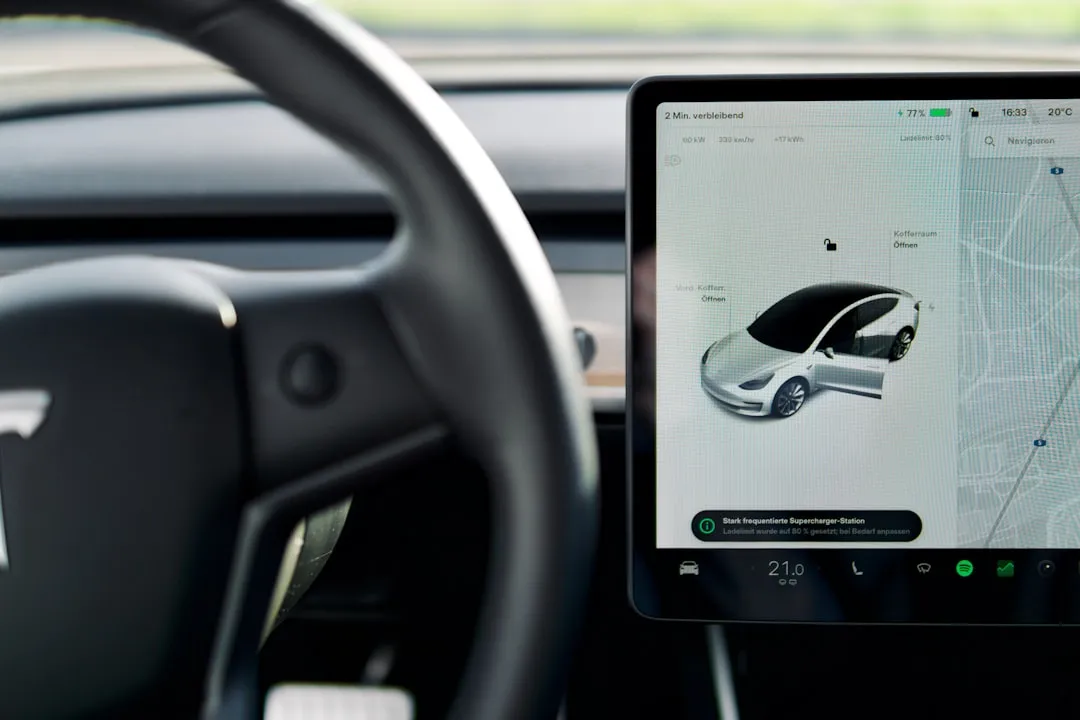Looking at this massive regulatory shake-up, it's clear that Apple's European operations are about to get a lot more complicated. The European Union has just dropped a bombshell on two of Apple's key services—Apple Maps and Apple Ads—claiming they've grown big enough to warrant the same strict oversight that already covers the App Store and iOS platforms.
What we're seeing here is the Digital Markets Act flexing its muscles in ways that could fundamentally change how Apple operates across European markets. The European Commission recently determined that both Apple services appear to cross the established boundaries for gatekeeper designation, and honestly, the numbers don't lie. Apple itself has acknowledged that its advertising and mapping platforms meet the numerical requirements—specifically exceeding 45 million monthly active users while Apple maintains a market valuation above €75 billion (Trading View reports).
Here's where it gets interesting: European regulators have a 45-day window to make their final determination on whether these services should face enhanced antitrust measures (WCCFtech confirms). That's not a lot of time, but it's enough to send ripples through Apple's entire European strategy.
What makes a service a "gatekeeper" anyway?
The Digital Markets Act isn't just throwing darts at a board here—there's actually a pretty specific formula for determining when a tech platform becomes powerful enough to warrant serious regulatory attention. The financial thresholds alone are staggering: companies must maintain a market capitalization of €75 billion or generate EU revenues of at least €7.5 billion annually over three consecutive business years (WCCFtech details).
But it's not just about having deep pockets. These platforms also need to demonstrate substantial user engagement, specifically surpassing 45 million monthly active users within EU borders (Channel News Asia explains). The legislation targets platforms that function as essential gateways between businesses and consumers, ensuring these digital intermediaries don't abuse their market position (Money Control reports).
Apple already carries the gatekeeper designation for several core services—the App Store, iOS operating system, and Safari browser received this status two years ago (RTE notes). This means we can look at how Apple has handled existing DMA compliance for concrete insights into what's coming. For instance, Apple has already invested thousands of engineering hours implementing alternative app stores, enabling sideloading, and creating entirely new API frameworks to accommodate third-party access while maintaining security standards.
The pattern reveals that European regulators are systematically evaluating services based on quantitative criteria rather than targeting specific companies. It's a data-driven approach that removes political considerations—if you hit the numbers, you face the scrutiny, regardless of whether you're Apple, Google, or any future platform that reaches these thresholds.
Apple pushes back on the designation
Apple isn't accepting this potential expansion quietly, and their defense strategy reveals some fascinating arguments about how gatekeeper status should actually work. The company has submitted official rebuttals to the pre-designation notification, challenging whether meeting numerical thresholds automatically translates to meaningful market power (RTE confirms).
For Apple Ads, Apple's argument is particularly compelling: the company contends it represents a minimal player in EU online advertising markets when compared to established competitors like Google, Meta, Microsoft, TikTok, and X (Channel News Asia reports). This defense essentially challenges the DMA's foundational logic—suggesting that having millions of users doesn't necessarily mean you control market access if you're still competing against dominant players.
The Apple Maps situation presents an even clearer case study in this market share versus user numbers debate. Apple emphasizes the service's limited usage across European markets compared to Google Maps and Waze (RTE details). Unlike Google, which processes the vast majority of European search queries and map requests, Apple Maps operates in a highly competitive environment where users actively choose between multiple well-established alternatives.
What makes Apple's position particularly strategic is how it connects to the company's broader DMA criticism. Apple has consistently argued that the legislation unfairly targets American tech companies while allowing other market leaders to operate without similar restrictions (Apple's official statement). This creates a precedent-setting case: if Apple succeeds in demonstrating that numerical thresholds alone don't reflect gatekeeper power, it could reshape how future DMA assessments work.
The compliance challenge ahead
If European regulators designate Apple Maps and Apple Ads as gatekeepers, Apple faces a six-month deadline to implement comprehensive compliance measures (Economic Times reports). Based on Apple's experience with existing gatekeeper services, this timeline represents both an opportunity and a massive technical undertaking.
The potential designation introduces significant new complexity to Apple's European operations (Trading View notes). Apple has already demonstrated the scale of these challenges through its existing DMA implementations: alternative app stores required entirely new security frameworks, sideloading demanded comprehensive malware protection systems, and third-party payment integration necessitated rebuilding core App Store functionality (Apple states).
For Apple Ads specifically, gatekeeper status would likely require opening advertising systems to greater third-party access and potentially limiting integration with other Apple platforms. This could mean creating APIs that allow competitors to access the same targeting data and placement opportunities that Apple's own services enjoy—essentially engineering away some of Apple's competitive advantages.
Apple Maps faces even more complex technical requirements. Gatekeeper designation could demand providing mapping data or core functionality to competing services, similar to how Google must now offer choice screens for map providers in search results (CEPA analysis). Imagine the engineering challenge: Apple would need to create systems allowing competitors to access routing algorithms, location data processing, and real-time traffic information while maintaining user privacy and service reliability.
The broader implications extend beyond individual features to Apple's entire product development cycle. The company would need to engineer these services from the ground up with third-party access in mind, potentially slowing innovation and increasing costs for every new feature or improvement.
What this means for the broader Apple ecosystem
This expansion represents something much more significant than additional regulatory oversight—it signals the EU's commitment to strengthening rather than scaling back Digital Markets Act enforcement (CEPA confirms). The European Commission is actively evaluating the DMA's effectiveness and positioning to expand the law's reach into AI services and cloud computing in future iterations (CEPA details).
The real-world impact on European consumers is already visible through Apple's existing DMA compliance. The company has postponed iPhone Mirroring, delayed Live Translation for AirPods, and held back Apple Maps features like Visited Places because they can't figure out how to share these capabilities with competitors without compromising user privacy (MacRumors reports). Additional gatekeeper designations would accelerate this pattern, potentially creating a permanent innovation gap between European and global Apple services.
Here's what's particularly striking: Apple's compliance efforts have consumed thousands of engineering hours while often delivering what Apple considers inferior user experiences (Apple explains). The company reports receiving over 100 developer requests for access to sensitive iPhone data, including notification contents and Wi-Fi network histories—requests that highlight the privacy trade-offs inherent in DMA compliance.
The precedent-setting nature of this case extends far beyond Apple's European operations. Countries from Japan to the UK have adopted their own versions of digital market regulation (CEPA notes), making the outcomes here potentially influential for global tech regulation. If Apple Maps and Apple Ads receive gatekeeper status despite their relatively modest market positions, it could signal that user numbers alone—rather than market dominance—will drive future regulatory decisions worldwide.
The situation also reveals the fundamental tension between Apple's integrated ecosystem approach and regulatory demands for openness. Apple has built its competitive advantage on seamless integration between services, but DMA requirements essentially force the company to engineer away these advantages in favor of third-party access and interoperability.
Where does this leave Apple and EU users?
The European Commission's 45-day review period will likely focus on a crucial question: should numerical thresholds override actual market influence when determining gatekeeper status? Apple's arguments about limited market impact represent more than corporate pushback—they challenge the fundamental logic of threshold-based regulation (Money Control notes).
For European consumers, the outcome determines whether they'll access more open, interoperable versions of these services or continue using Apple's current integrated approach. But the implications reach much deeper: this case will establish precedents for how regulators worldwide balance raw user numbers against competitive market dynamics when evaluating platform power.
The broader context makes this decision even more consequential. Apple has called for complete DMA repeal (CEPA reports), while competitors and consumer groups argue for strengthened enforcement. The Commission's decision on Apple Maps and Apple Ads could tip this debate in either direction, potentially influencing whether European regulators double down on numerical thresholds or introduce more nuanced market assessment criteria.
What's particularly fascinating is how this case intersects with the Commission's plans to expand DMA coverage into AI and cloud services (CEPA analysis). If Apple successfully argues that user numbers don't equal gatekeeper power, it could complicate future attempts to regulate emerging technologies where market dynamics are still evolving and traditional competitive metrics may not apply.
The coming weeks will reveal whether Europe's most ambitious tech regulation will expand its reach even further into Apple's ecosystem, or whether Apple's market share arguments will introduce new flexibility into gatekeeper assessments. Either outcome will likely influence how millions of users interact with mapping and advertising services across the continent, while potentially reshaping the global approach to digital platform regulation for years to come.
Bottom line: We're watching the future of platform regulation take shape in real time, where the decisions made about two relatively modest Apple services could determine how tech companies design their products and compete in digital markets worldwide.
























Comments
Be the first, drop a comment!